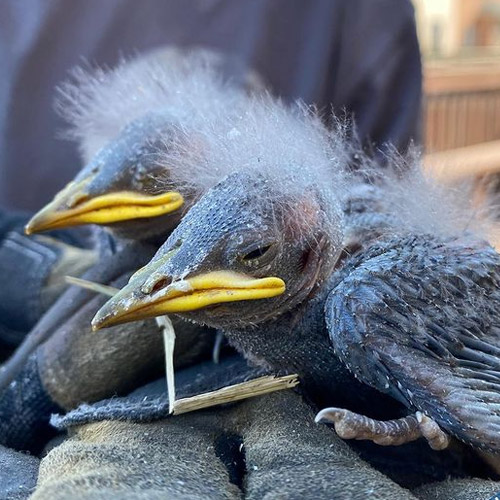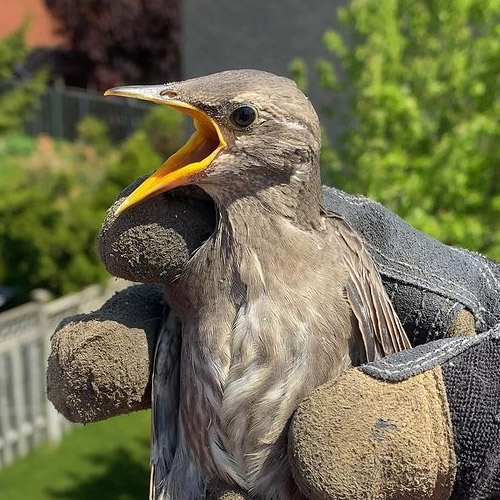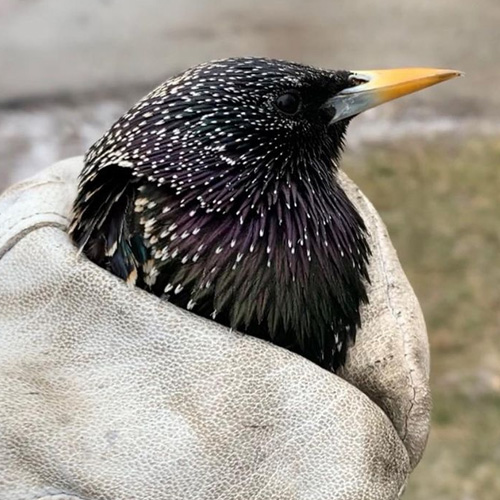Home / Wildlife Control Services in Vancouver / Starling Problems
Starling Problems
A variety of starling problems can occur when they decide to nest within a residential or commercial structure. Starlings pose significant risk to property and can cause severe health hazards, especially in farming communities. The following are some common starling problems and some warning signs for you to look out for:
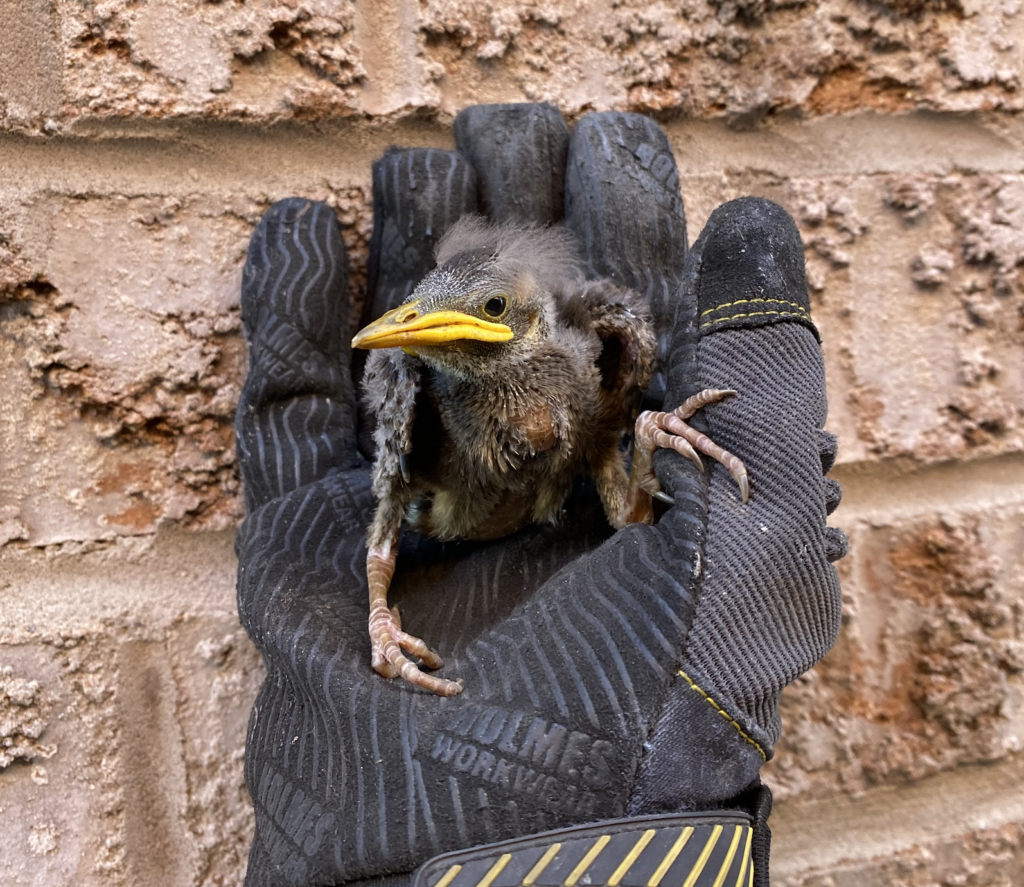
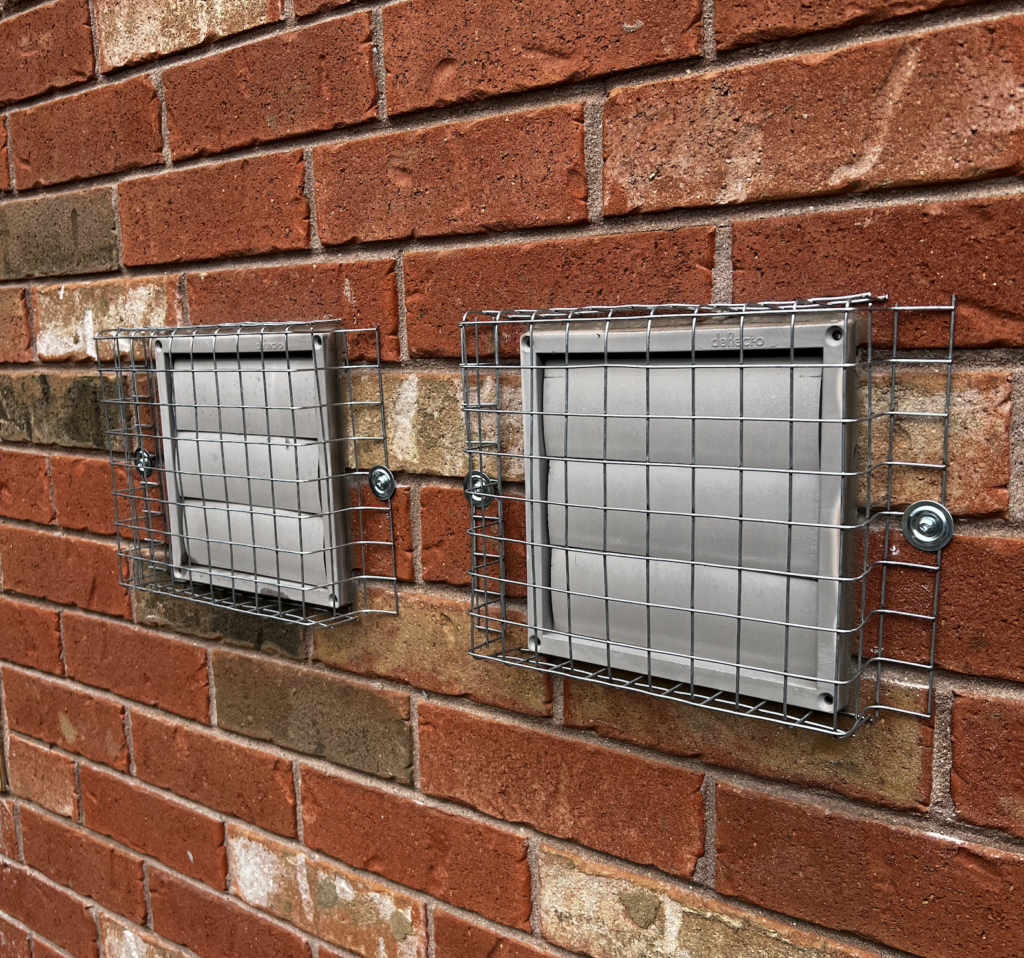
Property Damage
Fire hazards: Starlings like to nest in homes and other buildings, and often return to old nesting sites, year after year. Unlike other birds, starlings do not remove old nesting material, which can create significant fire hazards.
Water damage: Nests can clog drainage pipes and gutters, leading to backup and significant water damage.
Structural damage: Uric acid in feces can corrode metal, masonry and stone if starling droppings are allowed to accumulate.
Health and Safety Risks
Disease: Histoplasmosis, a fungal respiratory disease, can be caused by bacteria, fungal agents and parasites in the bird’s feces. In extreme cases, this disease can cause blindness and even death.
Fire Hazard: Dryer vents can pose a serious fire hazard if animals such as birds or rodents build nests inside them. When animals build nests in dryer vents, they can block the flow of air, causing the dryer to overheat and potentially start a fire. In addition, the materials that animals use to build their nests, such as lint, feathers, and nesting materials, are highly flammable and can easily catch fire if exposed to heat or sparks.
Livestock: Starlings may transfer the gastroenteritis virus (TGE), as well as other diseases, between livestock facilities. Hog farms are at an especially high risk.
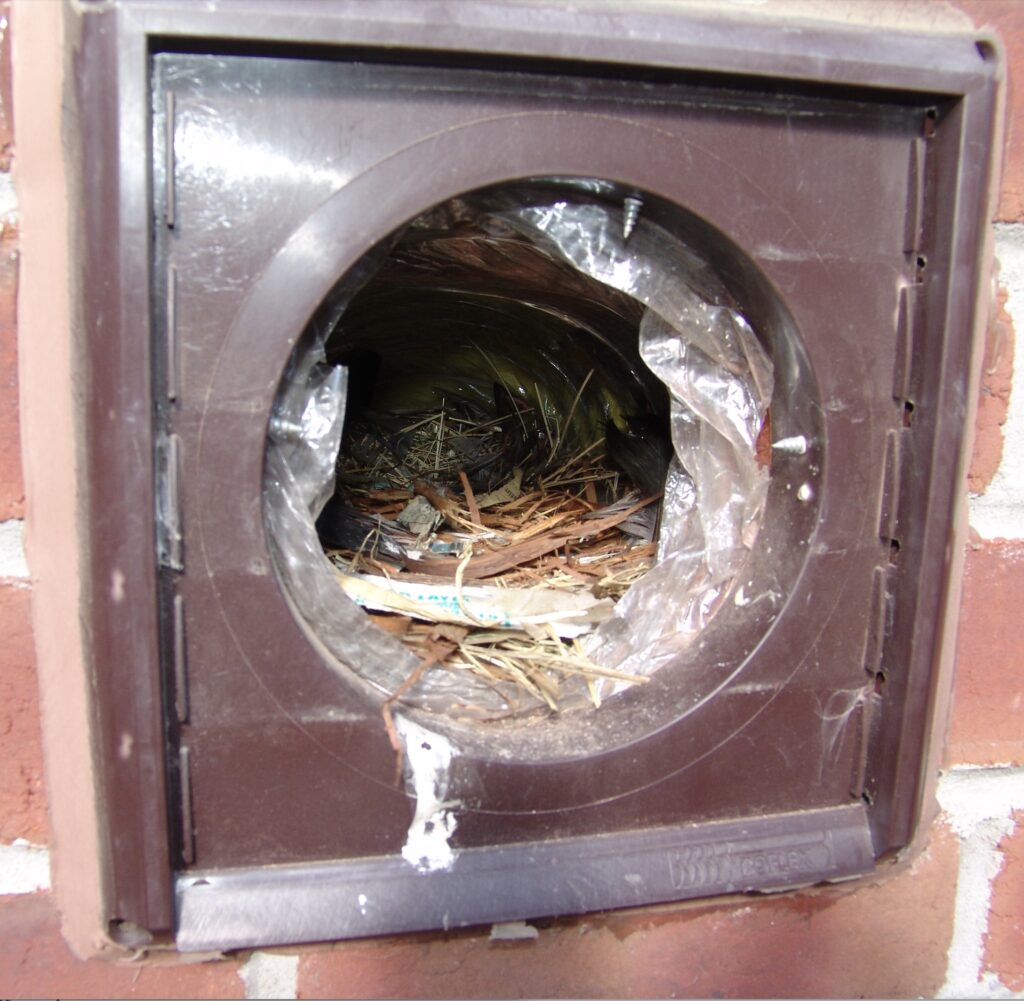
Morphology and Lifestyle
- Length: 15 – 30 centimeters depending on species
- Weight: 34 – 225 grams
- Calls: Varied – can emit a “wolf whistle” like sound along with various whistling notes and chatter
- Lifespan: About three years on average
Did You Know?
- Starling fact: Starlings are very aggressive!
- Starling fact: Slippery droppings pose safety risks in populated areas.
- Starling fact: Starlings compete for resources with native, cavity-nesting birds like purple martins, bluebirds and flickers.
39 Years Of Wildlife Removal Experience
At Gates Wildlife Control, we offer professional and effective animal removal and prevention solutions to keep raccoons, squirrels, and skunks from entering your home. We also provide effective rodent control services for mice and rat infestations. Our team is trained and experienced in the installation of one-way doors, which allow the animals to exit your attic or walls, but prevent them from returning. Contact us today for a free consultation and quote,to keep these animals out of your home for good.
Raccoons, squirrels, and skunks are common animals that can cause damage and create nuisances when they move into your attic or walls. They can chew on wires, damage insulation, leave droppings and debris, and even carry diseases and parasites.
One-way doors are a humane and effective way to remove these animals from your home and prevent them from returning. The doors are installed over the entry points the animals are using to access your attic or walls. Once the animals leave to forage for food, they are unable to re-enter the space through the one-way door.
At Gates Wildlife Control, we have the knowledge and equipment to effectively install one-way doors for raccoons, squirrels, and skunks. Our team will also assess your home and identify any potential entry points that need to be sealed off to prevent future intrusions.
In addition to installing one-way doors, we also offer repair services for damage caused by the animals and provide screening of potential entry points. This includes fixing holes in the roof or walls to prevent water from coming into the roof and walls and installing screens over roof vents, soffits and chimneys.
Don’t let raccoons, squirrels, or skunks take over your attic or walls. Contact Gates Wildlife Control today for a free consultation and quote, and keep these pests out of your home for good with our one-way door installation services.
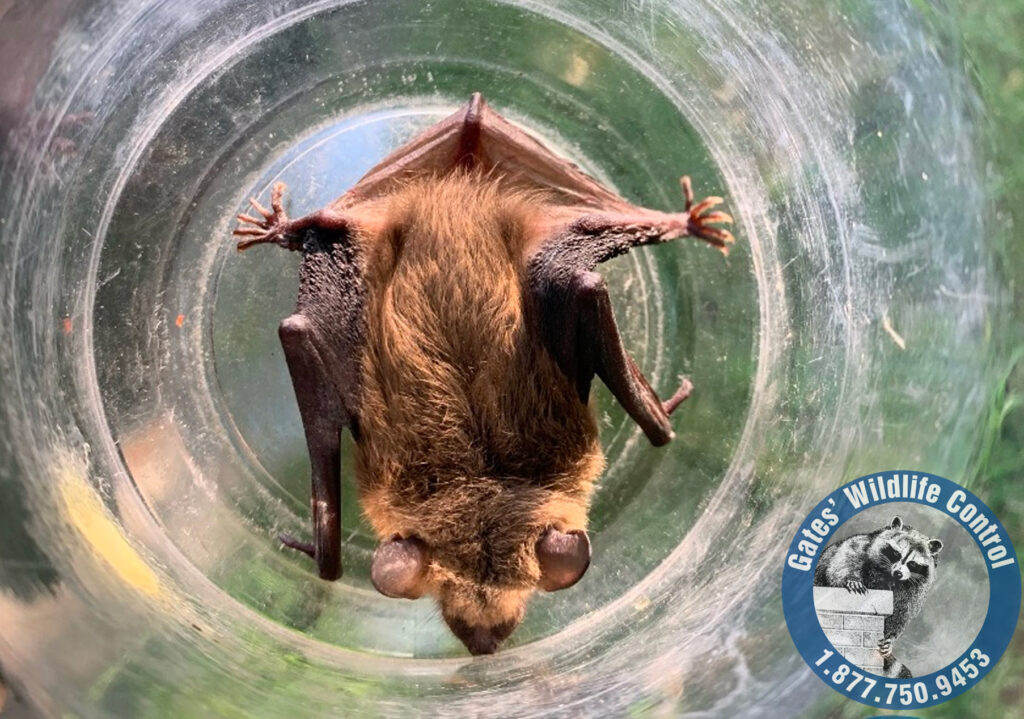
Morphology and Lifestyle
- Wing span: Big Brown Bats – 32 to 39cm; Little Brown Bats – 22 to 27cm.
- Weight: Big Brown Bats – 11 to 25g; Little Brown Bats – 5 to 11g.
- Vocalization: Bats use high frequency echo-location that is hard to hear with the exception of some clicking sounds.
- Lifespan: Between 10 and 20 years with the rare bat living as long as 30 years.
Did You Know?
- Bat fact: Bats play an important role in our environment as they can consume up to 3,000 insects in one night.
- Bat fact: Bats in Canada will not fly in your hair and suck your blood.
- Bat fact: Bats can spread the rabies virus when infected with very little to no evidence of contact.
- Bat fact: Bats can squeeze through a hole the size of a dime.
- Bat fact: A bat can produce several times its own weight in waste each month.
- Bat fact: Bat colonies can range in size from one to several hundred and can double in size every year.
- Bat fact: Bats hibernate when the temperature drops below 10 degrees C.
More About Starling

Humane Raccoon Removal

Humane Skunk Removal

Humane Squirrel Removal
Do It Yourself Dangers
For those who may be tempted to take on the task of removing animals and animal proofing themselves, it is important to remember that it can be a dangerous undertaking. Falling off ladders and roofs while attempting to remove animals or seal entry points can result in serious bodily harm. In some cases, even aggressive animals can pose a danger to those trying to remove them. It is best to leave these tasks to experienced professionals who have the knowledge and equipment to safely and effectively handle wildlife removal and animal proofing. Attempting to do it yourself can put you at risk of injury and potentially even more damage to your home.


















